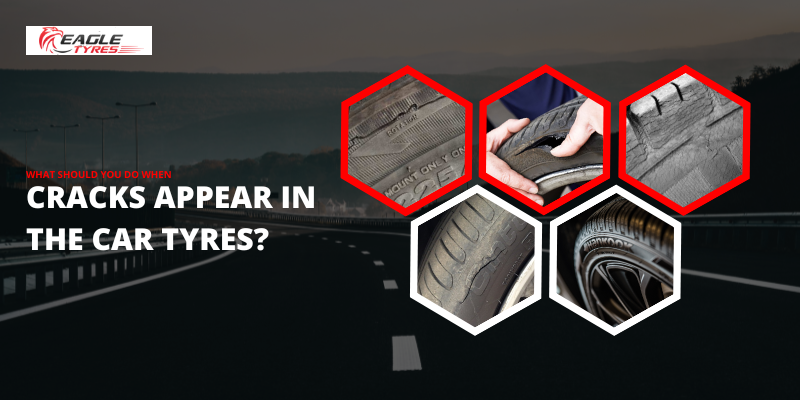Car Tyres are the most crucial part of your vehicle, which is intended to keep you safe on the roads. Without tyres, you can’t imagine driving anywhere and maintaining them in good condition throughout their lifespan is indispensable. Tyres don’t serve for the life of your vehicle; thus, you need to watch out for signs of wear and tear, including cracks.
Why Do Your Car Tyres Crack, and What Is The Reason Behind It?
The fibres inside your vehicle tyres maintain tyre structure and give it flexibility, referred to as plies. Beside plies are beads, which consist of steel and are coated in rubber to produce a seal between the wheel rim and tyre. And the rubber used on the outer part of the tyre constantly remains in contact with the road and is made of polymers woven together to create molecules. When these bonds break down, it produces cracks in your car tyres, which means they are not usable anymore and should be changed without delay to avert any accidents. It leads us to the following question: Why do these bonds weaken and break down?
Tyre Age
When your car tyres advance in age, you’ll start experiencing problems, and there is a higher risk of accidents happening. When the tyres get older, the polymers start to break down, hardening your vehicle tyres and making them brittle. The loss of elasticity can also cause cracks in your vehicle tyres. And it is more advantageous to drive your car more regularly instead of parking it for extended periods. When the tyre moves, the chemicals get released, preventing the tyre from drying out and cracking.
Extreme Exposure to Heat/UV Rays
There are many reasons your car tyres break down; constant exposure to UV rays and extreme heat are responsible for this. The polymers inside the tyres are made to contract in the cold and expand in the heat. Nonetheless, this continual movement can risk the bonds, which can weaken with time, and this is when cracks start to surface. UV rays can also inflict this, so keeping tyres in a dark, cool room is recommended.
Tyre Pressure
You should have the correct pressure in your car tyres to shield them from developing cracks. If your car tyres are not correctly inflated and remain under pressure, more heat is transmitted when they contact the road, producing more friction. Over-pressured vehicle tyres can add more stress to the tyre wall causing bulging, which can also cause a tyre blowout.
Water
Even though rubber and vehicle tyres are waterproof, water can still penetrate tyres after driving on wet roads for extended periods. If this happens, the water can go around the inside of the tyre, exhausting it from the inside out. While the water would expand and contract within partial cracks in your tyre, these cracks can slowly get bigger and bigger.
How Risky Are Tyre Cracks? What Should You Do About It?
Driving with cracked tyres means the strength and flexibility of the tyres have been compromised, and risks a blowout while you’re driving. If you discover any bulges or cracks in your vehicle tyres, then it is vital to have them checked by a professional at a tyre shop before any accidents occur. So if your car tyres show signs of ageing or cracks start to show up, then make sure you get your vehicle tyres inspected by a tyre specialist and have them replaced at the earliest.
Contact Eagle Tyres, a leading wheel and tyre dealer in Sydney, for tyre or wheel replacement assistance, and we’ll be happy to help you. You can also buy tyres online from our web store from trusted brands such as Bridgestone tyres, Achilles Radial, Continental, Good Year, BF Goodrich, Dunlop and more.







